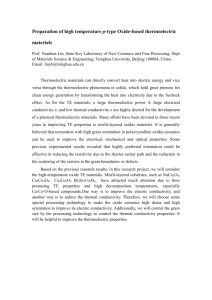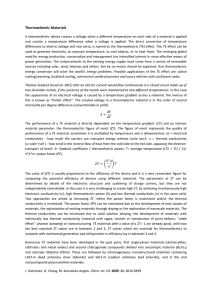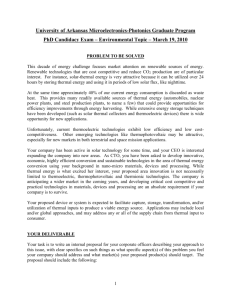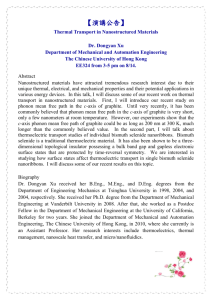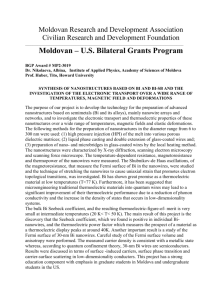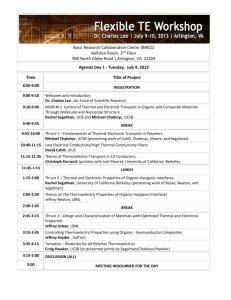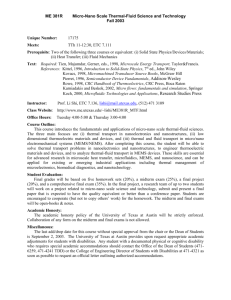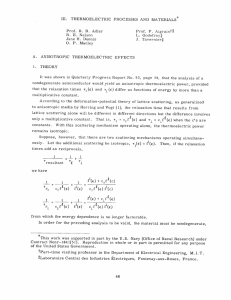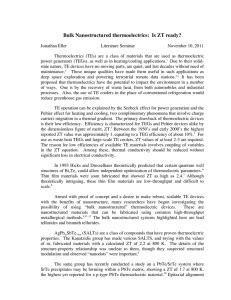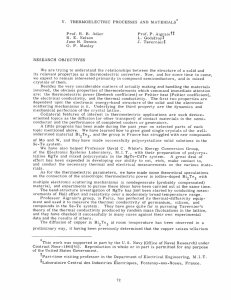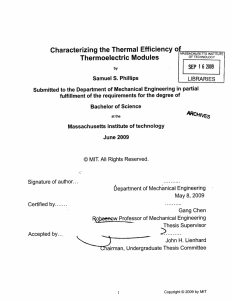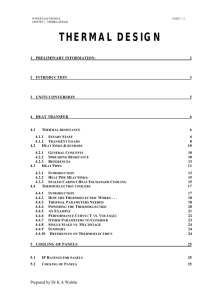Abstract
advertisement
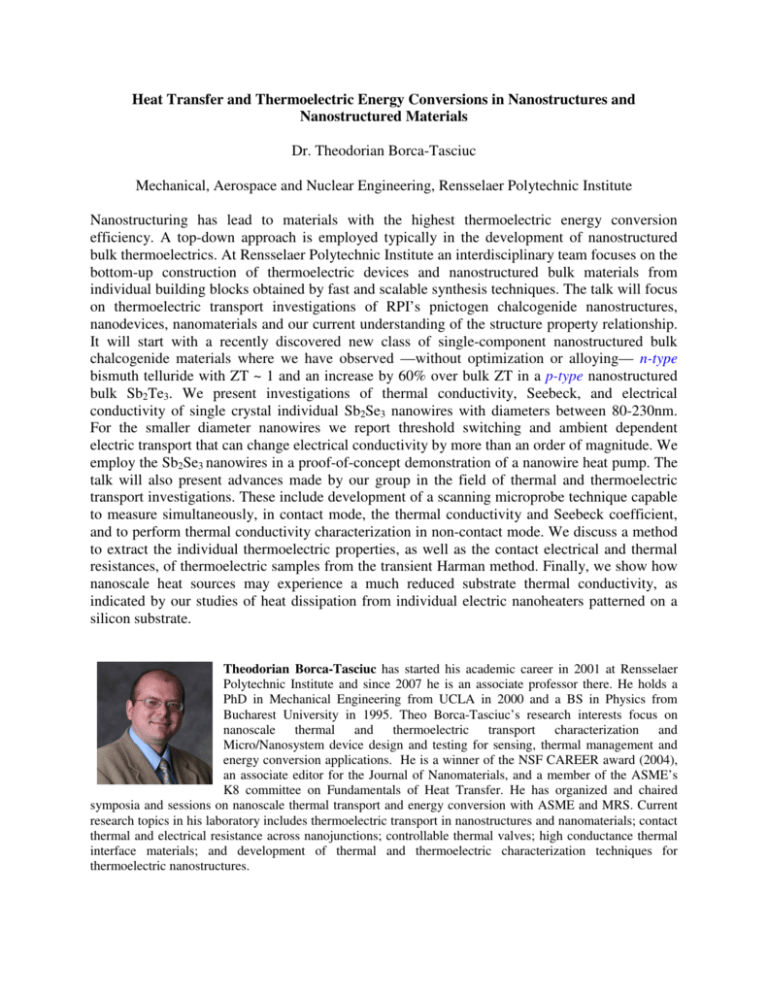
Heat Transfer and Thermoelectric Energy Conversions in Nanostructures and Nanostructured Materials Dr. Theodorian Borca-Tasciuc Mechanical, Aerospace and Nuclear Engineering, Rensselaer Polytechnic Institute Nanostructuring has lead to materials with the highest thermoelectric energy conversion efficiency. A top-down approach is employed typically in the development of nanostructured bulk thermoelectrics. At Rensselaer Polytechnic Institute an interdisciplinary team focuses on the bottom-up construction of thermoelectric devices and nanostructured bulk materials from individual building blocks obtained by fast and scalable synthesis techniques. The talk will focus on thermoelectric transport investigations of RPI’s pnictogen chalcogenide nanostructures, nanodevices, nanomaterials and our current understanding of the structure property relationship. It will start with a recently discovered new class of single-component nanostructured bulk chalcogenide materials where we have observed —without optimization or alloying— n-type bismuth telluride with ZT ~ 1 and an increase by 60% over bulk ZT in a p-type nanostructured bulk Sb2Te3. We present investigations of thermal conductivity, Seebeck, and electrical conductivity of single crystal individual Sb2Se3 nanowires with diameters between 80-230nm. For the smaller diameter nanowires we report threshold switching and ambient dependent electric transport that can change electrical conductivity by more than an order of magnitude. We employ the Sb2Se3 nanowires in a proof-of-concept demonstration of a nanowire heat pump. The talk will also present advances made by our group in the field of thermal and thermoelectric transport investigations. These include development of a scanning microprobe technique capable to measure simultaneously, in contact mode, the thermal conductivity and Seebeck coefficient, and to perform thermal conductivity characterization in non-contact mode. We discuss a method to extract the individual thermoelectric properties, as well as the contact electrical and thermal resistances, of thermoelectric samples from the transient Harman method. Finally, we show how nanoscale heat sources may experience a much reduced substrate thermal conductivity, as indicated by our studies of heat dissipation from individual electric nanoheaters patterned on a silicon substrate. Theodorian Borca-Tasciuc has started his academic career in 2001 at Rensselaer Polytechnic Institute and since 2007 he is an associate professor there. He holds a PhD in Mechanical Engineering from UCLA in 2000 and a BS in Physics from Bucharest University in 1995. Theo Borca-Tasciuc’s research interests focus on nanoscale thermal and thermoelectric transport characterization and Micro/Nanosystem device design and testing for sensing, thermal management and energy conversion applications. He is a winner of the NSF CAREER award (2004), an associate editor for the Journal of Nanomaterials, and a member of the ASME’s K8 committee on Fundamentals of Heat Transfer. He has organized and chaired symposia and sessions on nanoscale thermal transport and energy conversion with ASME and MRS. Current research topics in his laboratory includes thermoelectric transport in nanostructures and nanomaterials; contact thermal and electrical resistance across nanojunctions; controllable thermal valves; high conductance thermal interface materials; and development of thermal and thermoelectric characterization techniques for thermoelectric nanostructures.
